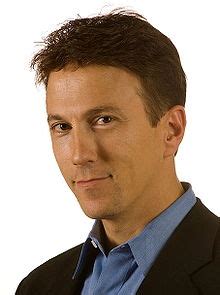A Quote by Eugene Ionesco
Related Quotes
... we grapple with this 'law of sin' (Rom. 8:2) and expel it from our body, establishing in its place the surveillance of the intellect. Through this surveillance we prescribe what is fitting for every faculty of the soul and every member of the body. For the senses we prescribe what they should take into account and to what extent they should do so, and this exercise of the spiritual law is called self-control.
It is necessary a writing critic should understand how to write. And though every writer is not bound to show himself in the capacity of critic, every writing critic is bound to show himself capable of being a writer; for if he be apparently impotent in this latter kind, he is to be denied all title or character in the other.
The epithet beautiful is used by surgeons to describe operations which their patients describe as ghastly, by physicists to describe methods of measurement which leave sentimentalists cold, by lawyers to describe cases which ruin all the parties to them, and by lovers to describe the objects of their infatuation, however unattractive they may appear to the unaffected spectators.
There's a side of fashion that's very analytical and data-oriented and methodical, but there's also a side of it that's just like magic. You can't quite put your finger on it, and you can't quite describe or prescribe a formula for how to get that magic exactly, but when you feel it and when you see it,you know that's what it is. It's magic.
You find very few critics who approach their job with a combination of information and enthusiasm and humility that makes for a good critic. But there is nothing wrong with critics as long as people don't pay any attention to them. I mean, nobody wants to put them out of a job and a good critic is not necessarily a dead critic. It's just that people take what a critic says as a fact rather than an opinion, and you have to know whether the opinion of the critic is informed or uninformed, intelligent of stupid -- but most people don't take the trouble.
Except that it’s not really 'now' that the inner critic attacks. It’s a few seconds or a minute ago. The inner critic depends upon comparison, and when we are fully aware in the present moment, when there is no past or future in our mind’s awareness, there is nothing to compare. There is only what is, as it is. The inner critic disappears.




































